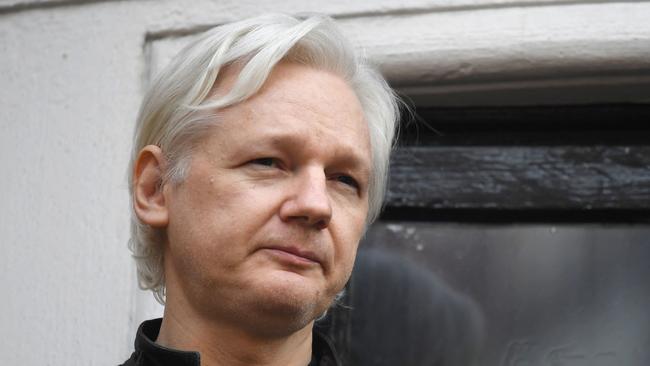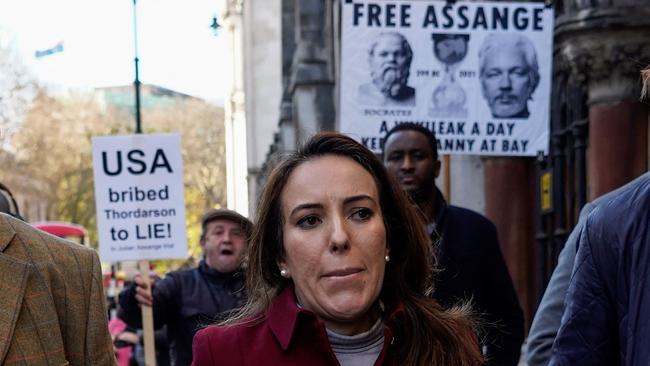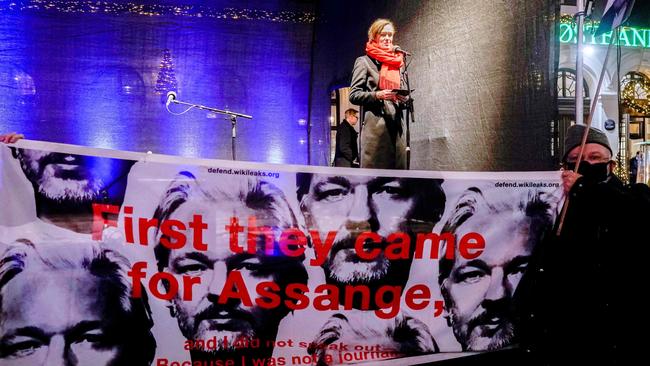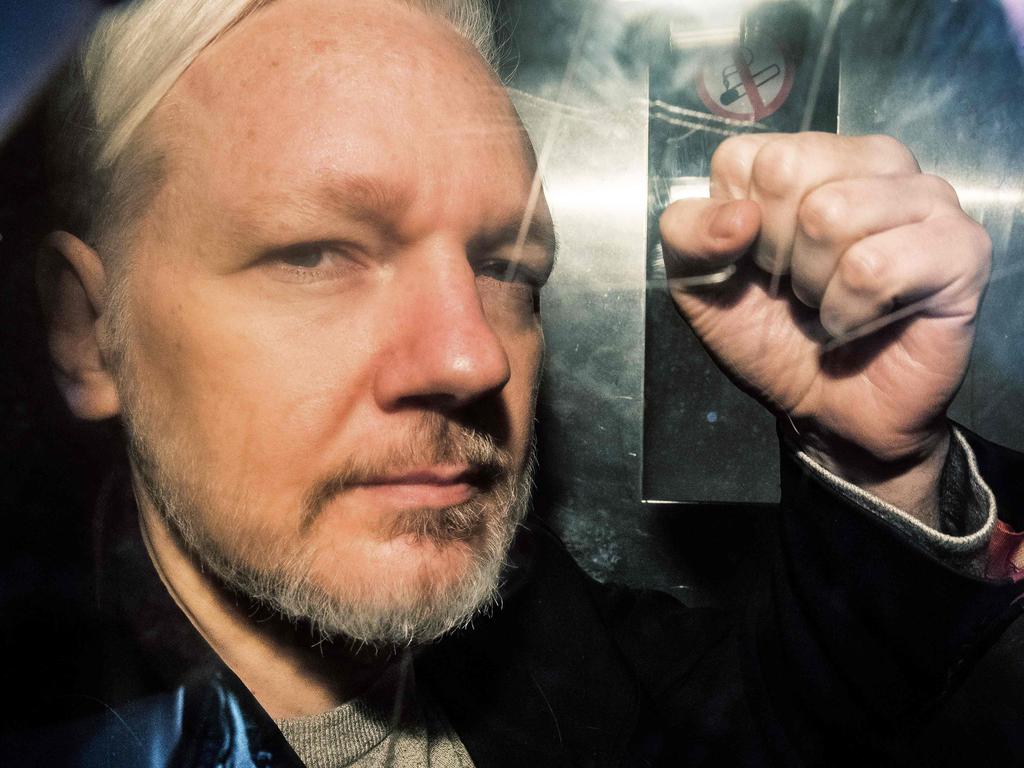Vendetta against Julian Assange must end
You may not like the WikiLeaks founder, his private life or political outlook, but his suffering already has been vastly out of proportion to his supposed crimes.

The old left-right divide has become increasingly meaningless in an age where governments have become so powerful and arrogant, the elites of the major political parties similarly under the thumb of the oligarchs of Silicon Valley and Wall Street (or whatever their local derivatives).
Whether you think the top marginal tax rate should be 47 per cent (Coalition) or 49 per cent (Labor) matters less than whether you think it is OK for a government to imprison someone for publishing leaked information.
Individual rights, the old-fashioned, 18th-century sort, such as a free speech, association, movement, a free press, are starting to matter again as they haven’t for generations as digital technology provides governments with the kinds of tools to snuff out dissent European monarchs could only dream of.

You may not like Assange, his private life or political outlook (whatever that may be), but his suffering already has been vastly out of proportion to the supposed crimes he has committed. Just turned 50, in poor mental health, recovering from a stroke and in effect having been imprisoned already for 13 years to avoid a fate that has become much more likely after British courts this month gave the green light to his transfer to the US for trial, Assange has been punished enough.
The Biden administration could have dropped the pursuit, showing itself to be above the sort of petty, vicious vendettas that motivate authoritarian regimes.
The damage, shedding light on the true casualty count and the allied and US internal machinations surrounding the Iraq and Afghanistan wars, was already done. The US has never made a convincing case that the information, related to events that occurred more than five years earlier, put anyone’s life in danger – the traditional argument for censorship. No “clear and present danger” from publication existed.
Moreover, the Assange pursuit has given the likes of China, Azerbaijan and other authoritarian countries the opportunity to mock the US over its commitment to free speech.
Leaks have a long history in the US; from the Pentagon Papers to Watergate, they have revealed truth to be in the public interest. All the major US news outlets republished what WikiLeaks had published without any changes laid against them.
And the administration has been guilty of gross hypocrisy.
A few weeks ago at Joe Biden’s Summit for Democracy, meant to showcase the importance of human rights and democracy to the world, the President said the US would set up a fund “to help protect investigative journalists against nuisance lawsuits designed to prevent them from doing their work”.
If there ever was a nuisance lawsuit by the US, it’s this one against Assange, who is accused of supposed crimes under the Espionage Act, a relic from World War I that criminalises much of what journalists do and which has been called a “fundamentally unfair and unconstitutional law” by the American Civil Liberties Union. The act, used to prosecute thousands of Germans in the US during World War I and others for disagreeing with the war, makes illegal the publication of classified government information, regardless of the public interest.

“We’re also going to invest roughly $US12m for new programs that are going to provide journalists with things like legal aid and training on digital and physical security,” Biden said at the democracy summit. Assurances that people will not be prosecuted and thrown into prison for publishing something that displeased the government would be more helpful than a token rounding error in the US budget.
If Assange is tried and convicted the damage won’t be obvious.
But journalists and their employers will be more wary about publishing information that could embarrass the US government. Fear of embarrassment and humiliation is what helps keep government honest and efficient. Sunlight is a powerful disinfectant. It is understandable governments want to protect some information. But if anyone is to face sanction, it should be the leakers, not the publishers.
Nothing Assange did was illegal in Britain or Australia, both of which have shamefully facilitated his extradition and probable imprisonment. Both rely on the US militarily and economically, especially Australia, but combined they could have acted to thwart his extradition, as the US would have done for its own citizen, a point made by Joyce.
Assange’s great tactical mistake was losing much of his left-wing support in the Democrat Party after WikiLeaks published a vast trove of emails a few months before the 2016 election that caused embarrassment to Hillary Clinton and supposedly helped Donald Trump get elected.
The Assange case has sifted out those who genuinely believe individuals have rights from those who think government is a tool to destroy your political enemies, which creates an insidious seesaw that risks imperilling the liberal democratic project when someone takes it that bit too far.
For now Assange’s fate appears sealed by inertia, hypocrisy and timidity. His only hope is an appeal to European human rights courts where the decision, ironically, will be as much about politics as human rights.






John Pilger and Barnaby Joyce make for an odd political coupling; likewise Alan Jones and Jeremy Corbyn. But all four have spoken out in favour of Australian Julian Assange, who’s facing extradition to the US and potentially life imprisonment for humiliating the US government in 2010, when Assange’s WikiLeaks published classified information handed to it on the Iraq and Afghanistan wars.